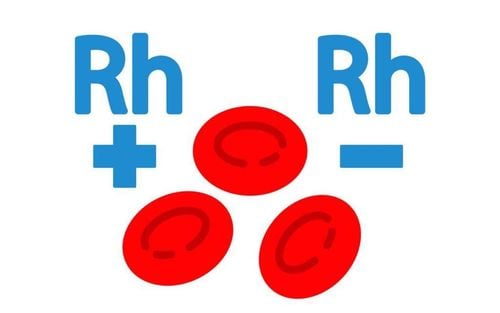This is an automatically translated article.
A miscarriage is the loss of a pregnancy before the 20th week of pregnancy. This is an issue of particular concern to pregnant women. Miscarriage has some fairly common symptoms such as vaginal bleeding, cramps... but these symptoms are also seen in other diseases during pregnancy, so it is difficult to determine exactly.1. Miscarriage Overview
Miscarriage can have many causes and is often difficult to pinpoint, but most often it is not the mother's fault. It is thought that most miscarriages are caused by a chromosomal abnormality, when a baby has too many or not enough chromosomes to not be able to develop properly.
Most miscarriages can't be prevented, but there are steps a mother can take to reduce the risk of miscarriage, for example limiting alcohol intake, smoking, and avoiding medication during pregnancy pregnancy; maintain a healthy weight before pregnancy, eat healthy and reduce the risk of infection,...
When there are signs of suspicion of miscarriage, you need to go to the hospital immediately. Your doctor will confirm the diagnosis by ultrasound, if the results show that a miscarriage has indeed occurred, you will be consulted about options for managing the lost pregnancy. Usually, the pregnancy tissue will come out spontaneously after 1-2 weeks, but in some cases you can also use medicine or surgically remove the pregnancy if you don't want to wait.

Sảy thai có thể do rất nhiều nguyên nhân và thường khó xác định rõ ràng
2. Miscarriage symptoms
The most common sign of miscarriage is vaginal bleeding. Blood can vary from spotting or brown discharge to heavy bleeding, bright red blood, or clots. This phenomenon may appear and then disappear within a few days. However, vaginal bleeding is also relatively common in the first 3 months of pregnancy, which is not necessarily a warning sign of miscarriage. As soon as you see this symptom, you need to see a doctor as soon as possible, especially for women with repeated miscarriages (recurrent miscarriages) need to be more careful.
Other miscarriage symptoms include:
Cramps, lower abdominal pain; There is an oily discharge from the vagina; Loss of the usual symptoms of pregnancy such as chest pain, fatigue... In rare cases, a miscarriage can be caused by a fetus growing outside the uterus, known as an ectopic pregnancy. At this time, pregnant women often have the following symptoms:
Persistent and severe abdominal pain, usually on one side; Vaginal bleeding, which usually occurs after the pain begins; Shoulder pain; Diarrhea, vomiting; Feeling lightheaded, possibly fainting. Pregnant women experiencing the above symptoms should be taken to the hospital as soon as possible for timely examination, diagnosis and intervention.
3. How is a miscarriage diagnosed and treated?
Your doctor will determine if you have had a miscarriage by performing a pelvic exam and ultrasound. If the definitive result is a miscarriage and the uterus is not infected, you will not need treatment. But if there are signs of infection or some other condition, the following treatments may be used:
Dilation and curettage (D&C): During this procedure, the doctor dilates the cervix and gently remove any remaining tissue or fetus in the uterus; Medications: Medicines can be used in place of a D&C procedure, such as misoprostol, to make the uterus heal on its own.

Hình ảnh nạo tử cung loại bỏ các mô hoặc bào thai còn sót lại trong tử cung
4. Problems getting pregnant after miscarriage
Most factors that cause miscarriage are beyond a woman's control, but to reduce the risk of miscarriage in future pregnancies, you can take the following steps:
Take time to recuperate health and healing after a miscarriage; Talk to your doctor about the right time to get pregnant again. Some doctors will recommend waiting a certain amount of time - from 1 menstrual cycle to 3 months - before trying to conceive again; Have a regular antenatal check-up schedule more often than before; Quit smoking, alcohol and drugs that are harmful to the fetus to ensure the healthiest pregnancy possible; Pregnant women with diabetes or hypertension need to keep these diseases under control; Keep your body weight at a healthy level; Follow a healthy diet with plenty of whole grains, fruits and vegetables; Cut back on caffeine: Limit to 200 mg of caffeine (or less) in a day, which is about the same as a cup of coffee.
5. How to prevent miscarriage?
Do not smoke during pregnancy; Do not drink alcohol or use illegal drugs while pregnant; Try to avoid infections during pregnancy, such as Rubella; Avoid certain foods during pregnancy that can be detrimental to the health of the mother and baby, for example soft cheeses (white or blue), raw or undercooked eggs, pates, raw or undercooked meats. fully ripe, animal liver,... Control your pre-pregnancy weight at a healthy level, because obesity increases the risk of miscarriage. A person is considered obese when the body mass index (BMI) is >30.
Please dial HOTLINE for more information or register for an appointment HERE. Download MyVinmec app to make appointments faster and to manage your bookings easily.
Reference source: webmd.com; nhs.uk












